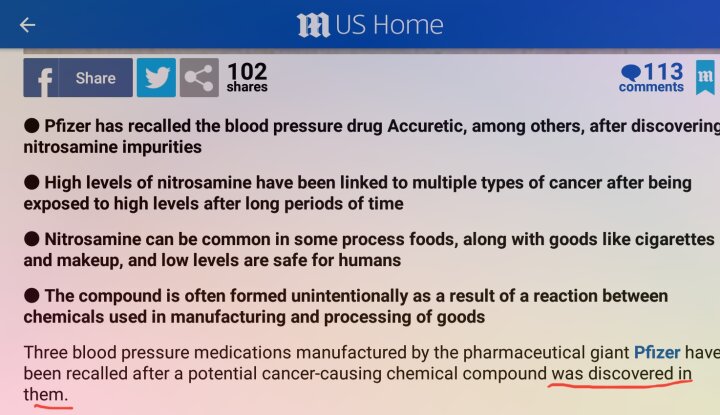@
WalterF You could well be right - I am not a lawyer, just someone who has had to battle with the nonsense that well-intentioned regulations can bring if not applied properly.
ISO900x was heavily "marketed" in the UK at least as a "quality-control" system, but the nearest it comes to being that, is ensuring only consistency of the existing product or service quality, not its intrinsic characteristics. It's really a management-control system based heavily on a top-down model; but became a must-have either for gloss or enforced by major, sometimes government-agency, customers. Some small business tried false advertising claims like "We service cars to ISO9001 standards".
Of course it is right that medicines and food-safety regulations are very, very strict. In the UK, food and medicine safety are under different governmental departments but the end result is similar to that of the FDA. in fact I think they co-operate with each other and with other nation's equivalents.
Any new medicines introduced in the UK have to pass similarly very rigorous testing and assessing, overseen by the National Institute for Clinical Excellence, and it can take a few years.
If I were an auditor I would ask if some trace impurity in any food or medicine has not been detected previously because the method used was not looking for it - perhaps not sufficiently sensitive even though accepted until a new test had been devised. If that is the case then it may not be possible to know when and how the impurity arrived except perhaps by exhaustively testing any remaining old stocks.
My main point though was not that it happened, regrettable though that was, but that the company acted as it did when it found it was happening.
The consequences should not include rolling heads. That is such a commonly-used reaction but unless the wrong was by illegal acts, it achieves nothing useful. It creates a hiatus while people are found to replace the ones who made mistakes, and really becomes vengeance rather than constructive work to minimise the risk of repeating such mistakes.
It also tends to create scapegoats, so a few people are unjustly sacked and everyone outside thinks that "job done". It does not address why the mistake happened, nor how to protect against it when it happens again. No-one can predict every error or failure, but assuming no illegality as such, constructive support and help are far better options than revenge.
It may mean tighter laws, but those should be considered carefully to ensure they don't remove the possible problem in one area by removing the area wholesale.
Or by aiming at the wrong people so it looks as if the real problem has been solved, when actually, it hasn't.
'
Some examples of the latter, from the last few decades. Unfortunately I can't give proper references or even dates, not without a lot of research hampered by the Internet companies now making this as hard as possible, but as I recall from they all being in the headlines at the time:
Italy: The country's head seismologist prosecuted for an earthquake being a lot more powerful and damaging than predicted. I can't recall if anyone was killed; but these events were and still are notoriously and naturally extremely hard to predict at all accurately, in times and intensities.
Germany: After a head-on collision on a single-track railway, the authorities prosecuted the unfortunate "train despatcher" (the news reports did not explain what that meant) who gave the second train's driver the "right-away" from a two-road station, onto the single track. No signal On, against that waiting train? No interlocking of points and signals? No single-line token or equivalent procedure? A train able to run through points that should have been set against it (or spring-blade points that allow access regardless)? I do not recall any mention of such basic precautions, established in the 19C, in any of the coverage. Just legal action against a fairly low-ranking staff member.
Great Britain: After one of the most notorious child-murder cases, that of a little boy called Peter Connelly, his killers, relatives supposedly his carers, were rightly tried and jailed. Equally rightly, no-one in the Social Services was prosecuted because although hindsight says they might have been able to save him, none of them had broken any laws. However, the local childrens' services head was viciously villified in the Press and by politicians for "failing" and for saying she "had done nothing wrong". Such incidents always lead to parrot-calls to "put procedures in place to ensure it never happens again"; but parrots do not think. Let alone consider if there are too few, or indeed too many and too rigid, procedures of the right sort. For she was right: for a start she was not one of the unfortunate case-workers but like them had done nothing wrong. The real difficulty seems to have been poor communications processes between different, over-worked, under-staffed authorities. The social-workers and their manager had done nothing wrong, but as they were told had followed as best they could, procedures already in place.....
===
No human-made system can ever be 100% efficient and correct in all circumstances. We can all only do our best but there is sadly a growing intolerance of that fact; and growing calls to blame unjustly, those staff members involved but unable to defend themselves. People are not robots; and the things they do can go wrong, are not foreseen, have unintended results, especially under stress by factors beyond their control.
Whilst it's right that illegality is prosecuted, or wilful negligence rooted out by the organisation's internal personnel processes, most cases need analysis, help and support, not metaphorical beheadings.





